Joining forces against COVID-19
In March 2020, the first Corona patient arrived at Heidelberg University Hospital (UKHD). In 2021, the pandemic continued to have an impact on medical staff but also on every individual and department. Explore the interactive graphic of our campus and discover some voices from the UKHD as examples. How did employees experience the situation on their teams and actively navigate the challenges of the pandemic?
Furthermore, learn from three members of the Corona Task Force how clinics and regional hospitals collaborated, how patients were distributed, and how bed capacity was organized. Besides all that we've mastered, we still can't put the pandemic behind us. COVID-19 will be with us for some time to come, both in terms of hospital procedures and hygiene measures, but also when it comes to the care of long Covid patients. You can gain an insight into the long Covid special outpatient clinic by watching the video.
Explore Map
Interactive elements
- Corona Task Force
- Interview with Prof. Dr. Jürgen Bauer
- Interview with Prof. Dr. Alexander Dalpke
- Interview with Prof. Dr. Klaus Heeg
- Long Covid Special Outpatient Department
Quotes
- Team UKHD
- Human Resources
- Quality Management
- Occupational Health
- Catering
- Information and Medical Technology
- Pharmacy
- Teaching
- Security
- Press Office
- Heidelberg Ion Beam Therapy Center (HIT)
- Kreiskrankenhaus Heppenheim
- Pharmacy
- Head Center
- Head Center Administration
- Orthopedics, trauma surgery and Paraplegiology
- Center for Internal Medicine (Krehl-Klinik)
- Department of Surgery
- Center for Psychosocial Medicine
- Thoraxklinik
- Women’s Hospital
- Center for Dermatology
- Center for Child and Adolescent Medicine (Angelika-Lautenschläger-Klinik)
- Hopp Children’s Cancer Center Heidelberg (KiTZ)
- National Center for Tumor Diseases (NCT)
Every one of our approximately 14,000 employees and every department has felt the effects of the Corona pandemic. This has put a burden on everyday life. On the other hand, it has also initiated changes from which we will benefit in many areas in the long term.
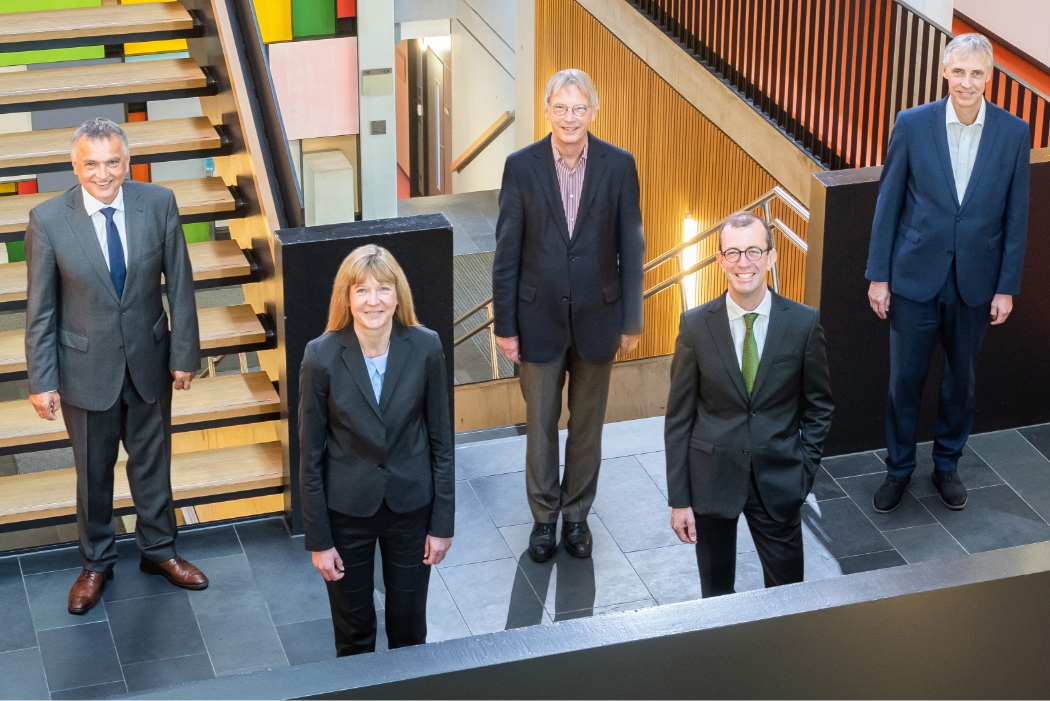
Managing Board UKHD
Long Covid drop-in clinic at the Heidelberg University Hospital
The pandemic - an enormous administrative effort! Our team continuously adjusted to the changing regulations. In addition to many discussions, coordination and research, this also meant sending out over 14,000 letters to employees each time. But Corona has also changed our work for the better: For example, online meetings are now routine and workflows have been digitized. And last but not least, the team spirit among our colleagues has grown once again.
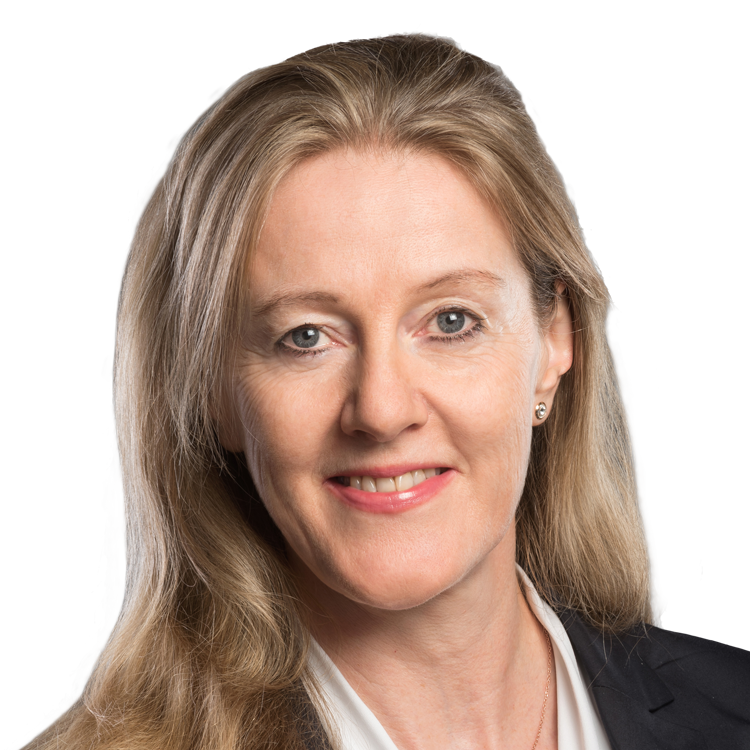
Dr. Christiane Tödter
Head of Human Resources
Measures to contain the Corona pandemic, such as restrictions on visiting hours or even the number of accompanying persons, led to a significant increase in the need for communication and information, especially among relatives. Accordingly, the number of complaints was also higher: the 5-year average for 2021 was an increase of around 10 percent. Analogously, the processing time was also higher in order to meet the need for clarification. Particularly helpful for the rapid resolution of inquiries, were the good and close cooperation with all clinics, as well as KSG and other areas, and the clear guidelines of our Corona Task Force. In the course of complaint handling, it also became clear what high additional workloads medical, nursing and service staff were and still are exposed to due to the pandemic situation.

Reinhard Göhrig
Quality and Complaint Management
After the first cases of the disease appeared in February 2020, we set up a hotline for employees. Over the past two years, in addition to all other tasks, our team has spent 11,682 hours alone advising employees on all aspects of the pandemic, vaccinations and infectiousness. And the need for information was only one facet. As a result of the pandemic, we were faced with numerous tasks and requirements. As occupational physicians, we have been instrumental in managing the pandemic at UKHD, from vaccinations and corona testing to hygiene plans and consultations.
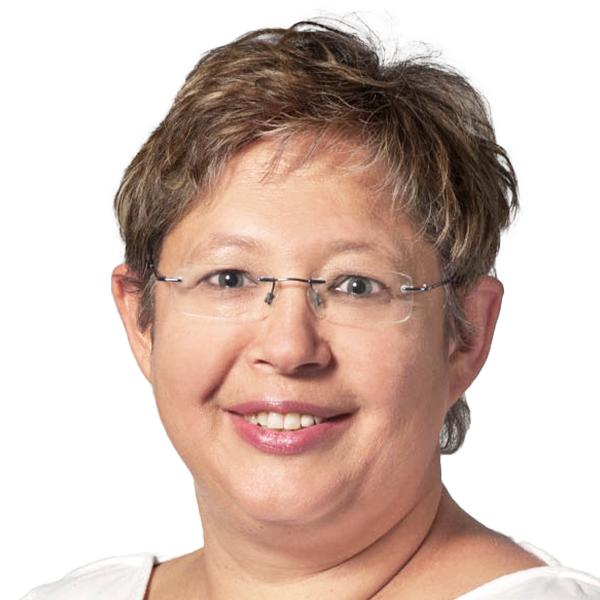
Marion Predikant
Head of the Occupational Health Service
If the elevator is not working again, the stairs must be used. In food service, we have zero tolerance for the non-delivery of our services. That means it's a challenge to guarantee 100 percent meal processing every day. We were very challenged to ensure that meals were always provided to patients and employees. Due to the hygiene regulations in force, we had to serve the food as take-away meals at times. This resulted in additional packaging material costs. Waste disposal also became more of a burden. Despite all the challenges, I am proud of my team, which has always mastered the situation with full commitment.

Ludger Rüping
Head of Supply Management
Corona has accelerated digitization projects. From the start of the pandemic to the end of 2021, our teams doubled the number of access points for home office workplaces and increased video conferencing solutions fourfold, among other things. In addition to general employee support, new offerings were also established for patients, such as 5,000 online medical consultations. We supported clinical work with 300 new medical technology systems on the COVID stations.

Oliver Reinhard
Head of the Center for Information and Medical Technology
We were and are directly involved in the vaccination campaigns and testing strategies and ensured that there were always sufficient materials and medications available. Since 2020, the UKHD pharmacy has dispensed over one million rapid tests to date and over 1.2 million vaccine doses. In the process, the pharmacy has produced over 70,000 vaccination shots.
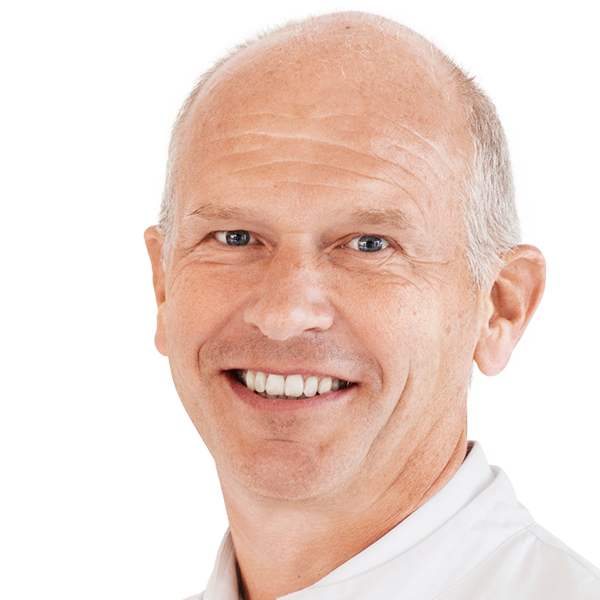
Dr. Torsten Hoppe-Tichy
Head of Pharmacy
With the combined efforts of all lecturers, the teaching coordinators, the Dean of Studies and IT Teaching, we have succeeded in offering the students continuous teaching and in being able to conduct all examinations. Wherever the framework conditions allowed, we took organizational measures to enable face-to-face teaching. In addition, a large digital teaching offer was created. This includes approximately 700 hours of instructional videos, more than 130 virtual patient cases and digital learning units, and more than 650 video conference rooms that we make available in Moodle. Despite the limitations, Heidelberg students achieved excellent results in the first state exam in medicine.
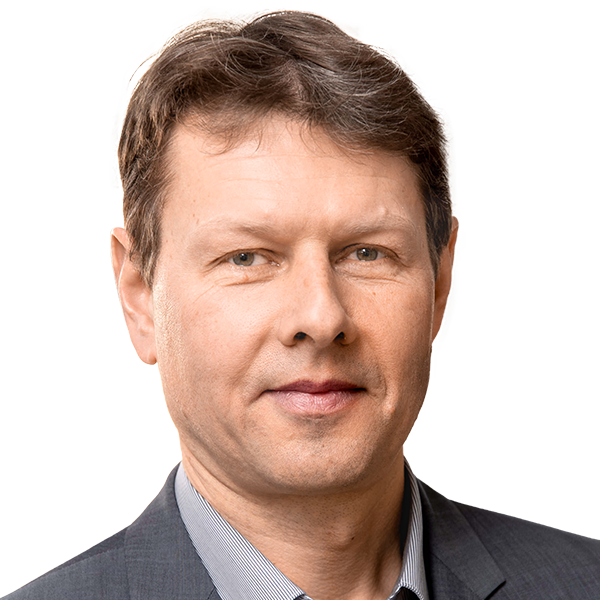
Dr. Stefan Titz
Teaching Coordinator, Scientific Director IT Teaching
One of our new pandemic-related responsibilities is access control. With twelve emergency personnel every day, we are responsible for all exterior doors of the clinics on campus. In 2021, we checked approximately 1,800,000 patients, relatives, and external visitors at the entrance; always in line with the current legal requirements for proof of immunization.
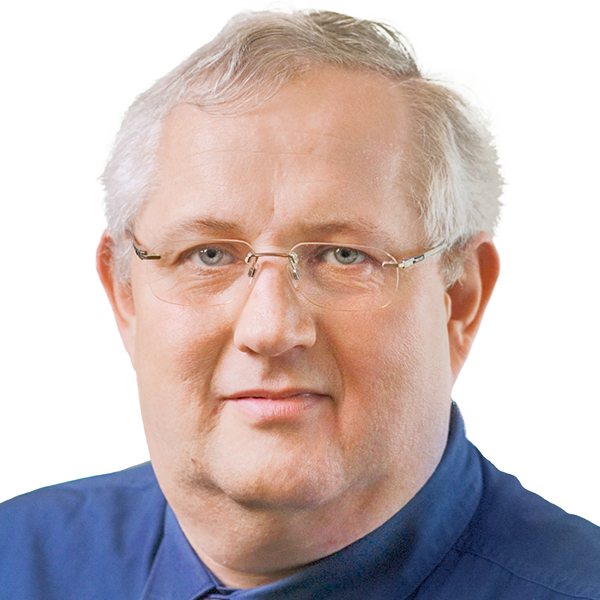
Jürgen König
Head of Security
The pandemic has caused a lot of uncertainty and broken up the established routines. Information, answers and opinions were sought - both internally and externally. The sole topic in the spring of 2020 and the intensive search for content and experts was unique. Corona continued to be a major challenge for Corporate Communications, as the interface for contacts at the hospital and for outside groups, in 2021. In addition to press inquiries about research and care topics, around 500 press inquiries about Corona were handled and interview partners arranged, the sensitive topic was communicated on the central social media channels, more than 750 employee inquiries were handled, and around two employee mailings were sent out per week. Graphic formats were used to provide orientation on campus, and internal and external information pages were set up online. A more than intensive time that once again made clear how important it is to work well together as a team. Thank you!

Doris Rübsam-Brodkorb
Head of Corporate Communications
Corona Task Force - The Control Center
How can we protect around 14,000 employees and all our patients from infection during a pandemic? This question still drives the UKHD's Corona Taskforce today. Over the past two and a half years, the task force has been at the heart of the fight against COVID-19, defining hygiene measures for the hospital. It quickly became clear that the task force could not achieve its goals entirely on its own. That's why it works closely with the interclinical staff of the Rhine-Main region. In the meetings of the staff, medical executives from all clinics in the district as well as representatives of the district office, the health department, the control center and the physicians in private practice organized the cross-sector care of Corona patients. Find out in three interviews what contribution the interclinical staff has made for the people in the region, how the Corona task force was able to be operational before the first patient, and what tasks it is currently facing.
Prof. Dr. Jürgen Bauer
Professor for Geriatrics at Heidelberg University and Spokesman of the Inter-Clinical Task Group of the Rhine-Neckar Region
Prof. Dr. Alexander Dalpke
Medical Director of the Department of Medical Microbiology and Head of the Infection Task Force
Prof. Dr. Klaus Heeg
former head of the COVID-19 Task Force of Heidelberg University Hospital (UKHD)
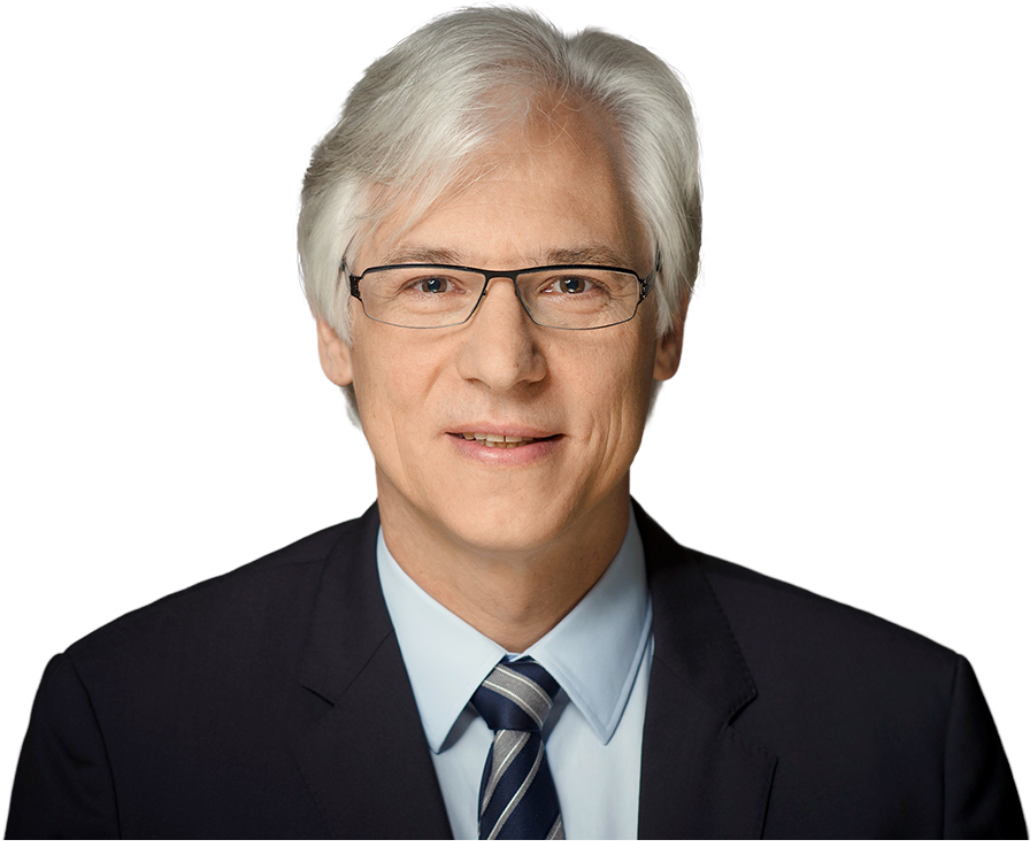
Prof. Dr. Jürgen Bauer
Professor for Geriatrics at Heidelberg University and Spokesman of the Inter-Clinical Task Group of the Rhine-Neckar Region
3 Questions for …
Prof. Dr. Jürgen Bauer
With what goals was the Inter-Clinical Task Group launched?
The core responsibility of the Inter-Clinical Task Group is to ensure that all hospitals in the region can
maintain their capacity to act and to guarantee a meaningful distribution during heavy workloads in the
interest of the well-being of all patients. For example, during the peak phase of the COVID-19 pandemic
patients with moderate symptoms tended to be referred to the smaller hospitals, whereas the severely ill
patients were treated most frequently at the Heidelberg University Hospital and its Lung Clinic, as these
facilities had the necessary capacities.
As Spokesman of the Inter-Clinical Task Group, I have attempted to mediate the interests of all parties
involved during our meetings. It was not always easy to achieve efficient cooperation among the more than 20
managers from the most important areas in the public health sector That is why I am very grateful that we
always pulled together in the end and were able to agree on a uniform action management plan.
During the peak phases of the COVID-19 pandemic the hospitals throughout Germany were overfilled. How die you succeed in managing the distribution of the patients in the region?
In the first wave, the number of sick persons was less problematic; instead, the key issue was how can we
best deal with the virus. For this reason, we invited other experts from the region, with whom we discussed,
among other things, masks, testing possibilities and new therapeutic approaches.
The second wave of the coronavirus as of the autumn of 2020 was more threatening for us, because
significantly more people fell severely ill to COVID- 19. This almost led to an overload of the hospitals.
Political decisions that were criticized in some places provided crucial relief for us. They include the
strict ban on visitors, which was supported by all staff members, because allowing uncontrolled visitors at
this time would presumably have paralyzed hospital operations to a large extent at that time.
The primary success factor was however very evidently the honest and collegial dialogue and the cooperation
shown by the most important parties involved in public healthcare in the region.
Which positive changes do you see after two years have gone by since the establishment of the Inter-Clinical Task Group?
In the Rhine-Neckar Region managers from various areas of public healthcare came together. We assume that
due to the structures that had already been built up in previous crises, we would be able to resume this
successful collaboration quickly. This is a very positive development for the people in the region.
On the federal and state level however, we must ask ourselves what we have been able to learn from the COVID
pandemic. I personally hope for even better collaboration between the German states. We are located directly
on the border between Baden-Wuerttemberg, Hessen, and Rhineland-Palatinate. This has meant that different
official regulations have frequently made some processes more difficult. Moreover, I hope that the federal
government is already getting ready for various scenarios of the pandemic for the autumn and will set clear
patterns of action, because the pandemic has shown that we should prepare for all possible developments.
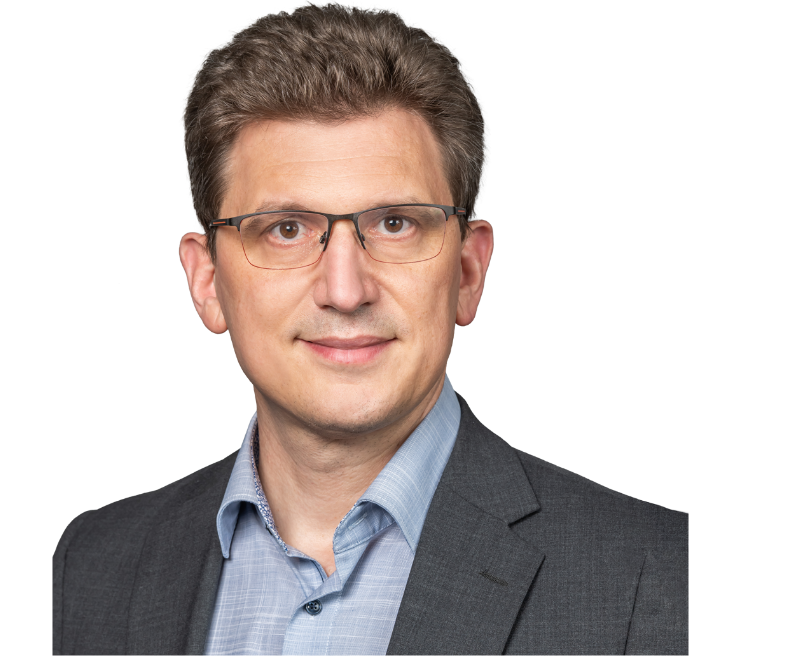
Prof. Dr. Alexander Dalpke
Medical Director of the Department of Medical Microbiology and Head of the Infection Task Force
3 Questions for …
Prof. Dr. Alexander Dalpke
Despite high incidences the burden for the Heidelberg University Hospital and other hospitals throughout Germany during summer has been significantly reduced. Why is the COVID-19 Task Force still necessary today?
It is true that the COVID-19 situation has markedly eased off, and the government has officially lifted the emergency related to this pandemic. We are transitioning from the pandemic to the endemic phase, but that also means that we have to learn to deal with the virus on a permanent basis. That's why the Corona Task Force is talking right now mainly about the balance between easing and continuing to need protective measures. For example, we are discussing whether or not the wearing of masks needs to be compulsory in the hospital, open access for visitors, the meaningful use of tests, and the enforcement of the vaccination requirement for the staff at Heidelberg University. On the other hand, we are preparing for the autumn when the infection rates will very probably rise. However, we are assuming that due to the milder courses of the Omicron variant fewer people will have to be treated in hospitals than in the previous years. However, the number of cases will certainly rise again.
To this extent our main task is now to ensure the prevention of infections to ensure the safe operation of the hospital and at the same time to evaluate which measures are still necessary to be lowered or eliminated altogether and which can be lifted. Ultimately, the goal is to ensure safe but also effective patient care.
How do you see the current situation of the pandemic?
We will have to continue to live with COVID-19. This virus will be one of the agents that will also trigger respiratory diseases in the future. Now the coronavirus no longer stands out among the large number of similar agents. This is because many people have now had infections or have been vaccinated - as a result, the immune system has learned to respond to this infection. Although we will surely experience individual severe or even fatal cases in the future, yet the overall disease burden will significantly decline through Omicron and take a similar course as is the case for other infections of the respiratory tract. Both vaccinations and infections of a large part of the population will contribute to a basic immunity. This is the crucial difference to the beginning of the pandemic and one of the reasons why the risk potential of COVID has drastically fallen.
How would you like to see the work of the COVID-19 Task Force further develop?
Correctly speaking, it is not a COVID-19 Task Force but an Infection Protection Working Group which is always convened when an infectious agent represents a potential risk for our patients in the hospital. The Task Force is a meeting of medical and nursing staff that is convened during an outbreak situation of an infectious disease for the purpose of providing advice on how to combat the infectious germs. In summer for example, the frequency of the so-called monkeypox infections was a possible task for the Infection Task Force. Otherwise, we unfortunately have to deal with multi-resistant bacteria again and again, which cause us problems in everyday life. Normally our work ends after a few weeks. The fact that the Task Force was continuously active for several years, is an absolute exception which was initially never intended. To this extent, the working group will once again become a working group as warranted. If Sars-COV2 does not trigger a major burden for the hospital this winter, the work of the COVID-19 Task Force would be completed for the time being. For this reason, we hope that we will not need the Corona Task Force to this extent in the future, but certain rules will surely remain permanent to control respiratory infections.
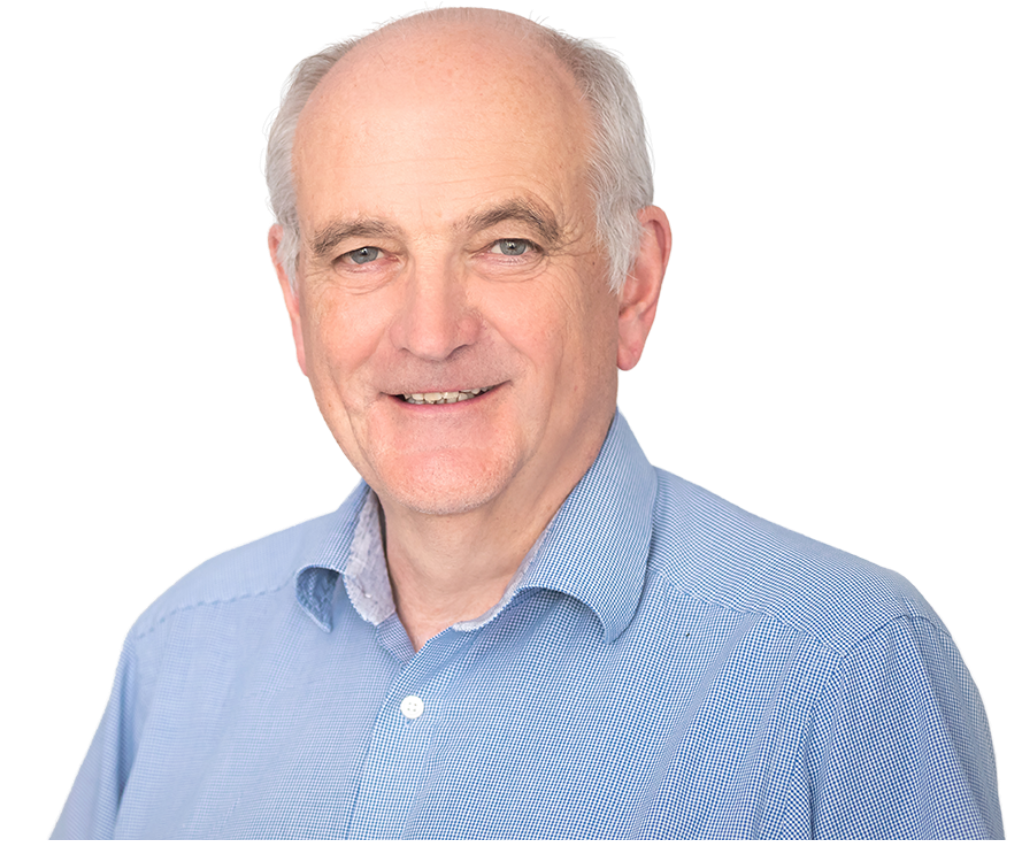
Prof. Dr. Klaus Heeg
former head of the COVID-19 Task Force of Heidelberg University Hospital (UKHD)
3 Questions for …
Prof. Dr. Klaus Heeg
Prof. Dr. Klaus Heeg, when and with what objectives was the COVID-19 Task Force established?
Firstly, we should be talking about the “Infection Task Force” the founding of which I had already proposed
in the year 2004. Two years later we set up a central unit for protection against infections and outbreaks
comprising representatives of the Hospital Management Board, the heads of nursing, and the press office.
Since then, the Task Force has been active when it comes to dealing with multi-resistant germs or the
transmission of infectious agents. For example, the Task Force worked on the swine flu in 2006 and on an
outbreak of RSV in 2012.
When COVID-19 was gaining ground in February 2020, we already had a functioning system. We did not have to
re-invent it or build it up; all the necessary lines of communication already existed. Even if we were able
to learn from previous cases, COVID-19 was the first comprehensive outbreak that had an impact on all
hospitals. This entailed a few challenges. The existing structures proved to be helpful in dealing with
these challenges. Already one week before the first COVID-19 patient came to us, the Task Force had met to
identify which measures to take. We were able to react immediately.
What is the objective of the Corona Task Force?
The aim of the COVID-19 Task Force is to monitor and coordinate all measures at UKHD so that an efficient
concept can be built up to prevent the transmission of the coronavirus. We provided protection for the
patients and all employees at UKHD as part of the external requirements and the discussed the measures with
the Inter-Clinical Task Group. This means in addition to a coordinated procedure the goal is also to
facilitate efficient communications – both internally and externally.
Two key measures at the beginning of the pandemic were masks and testing. For this we initially had to
prepare capacities. First, we equipped those employees who had direct contact with patients with masks. Once
the supply of masks was ensured, we were able to expand this measure. In the past two years we have
succeeded in preventing the transmission of almost all infections within the hospital. Testing was also
given a high priority. Already in the spring of 2020 we expanded the capacity for PCR tests and in August
2020 we began with fast tests – earlier than many others. By first screening all patients who came to the
hospital we were able to directly detect a high number of new infections.
Looking back: What would you have done differently if you had known what you know today?
Our level of knowledge is different today. Nevertheless, I do not believe that we would change very much
with respect to our basic structures for protecting people from infections. The University Hospital was able
to help the region – not only through the Task Force but also with other activities, such as the COVID-19
taxi, which enabled tests to be given to people who were in isolation at home.
Moreover, I am proud of the fact that the communication within the hospital worked so well and that our
employees, who had to cope with some drastic measures, were very understanding of the need for these
measures.



